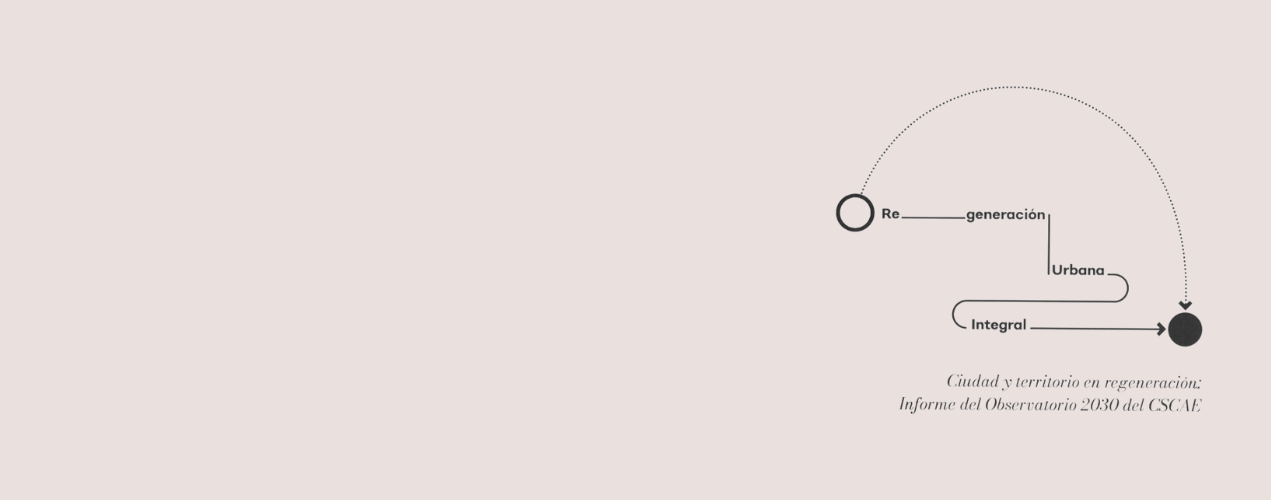10 July 2024
for Madrid Nuevo Norte

Crea Madrid Nuevo Norte has been part of the task force drafting of the report “City and Territory in Regeneration”, a document which, under the umbrella of the Senior Council of Architects of Spain (CSCAE) and its 2030 Observatory, was presented at the last Madrid Cities Forum. This group has contributed to the analysis and diagnoses that were the basis for a publication that aspires to be a reference on the current state and challenges of urban regeneration in Spain.
The report “City and Territory in Regeneration” synthesises the work of the Urban Regeneration Task Force and addresses fundamental questions such as: what is an urban regeneration process, what does it consist of, what is its value chain and what are the most appropriate instruments to carry it out? The publication includes a quick guide to help public administrations, as well as professionals and companies in the sector, in its optimal application.
The capital’s major urban transformation project, Madrid Nuevo Norte, has been selected as one of a number of key case studies of urban regeneration by the task force coordinated by the CSCAE, composed of 130 renowned professionals from academia, business and institutions. The report emphasises that the project’s urban model “represents a sea change for the regeneration of its immediate surroundings” and calls its management a unique example of public-private collaboration. It also highlights the contribution of new infrastructures and services for the city, as well as the activation of the social and associative fabric linked to the project.
On the design of Madrid Nuevo Norte, the CSCAE report highlights “its ability to establish cross-cutting themes, focusing urban renewal on the construction of an environment with low-carbon mobility and high economic dynamism, combining different uses”.
In the collective process of drafting the document, Crea Madrid Nuevo Norte has contributed its experience and analysis of the main challenges of urban regeneration, especially in the case of great projects on unconsolidated land, which are a distinct case.
The report noted that urban regeneration processes, especially in large projects such as Madrid Nuevo Norte, require long implementation periods. It is therefore crucial to open the debate on resilience and flexibility in urban planning to prevent projects from becoming obsolete due to their inability to adapt to rapid social, economic and environmental changes.
The challenges are also of a regulatory nature: these initiatives need a distinct, specific regime, and must not be confused with general initiatives when they require a different legal approach. Regulated mechanisms for public-private collaboration and to promote various forms of regeneration initiatives are also required. One of the particular conditioning factors of large-scale regeneration projects is the complexity of coordinating the large-scale infrastructures required. The report highlights the need to develop existing mechanisms in general regulations, such as the signing of collaboration agreements between public administrations and private parties to jointly address the technical, administrative and coordination challenges of these infrastructures.
Another of the keys to urban regeneration, as stated in the document, is the need for transformation processes to be based on a strong social, political and institutional consensus, taking into account the diversity of society’s needs and sensibilities and integrating them into the urban design.